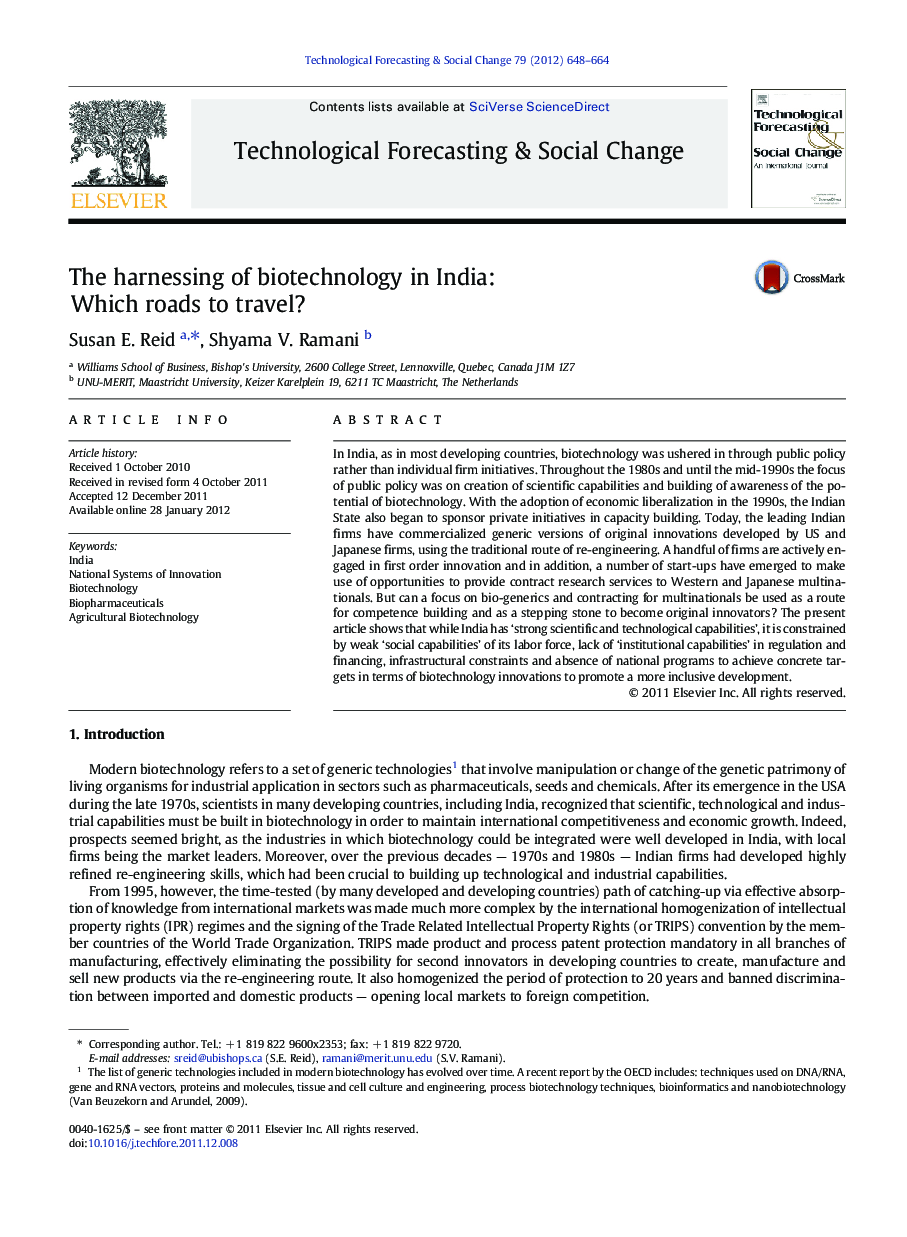| Article ID | Journal | Published Year | Pages | File Type |
|---|---|---|---|---|
| 896863 | Technological Forecasting and Social Change | 2012 | 17 Pages |
In India, as in most developing countries, biotechnology was ushered in through public policy rather than individual firm initiatives. Throughout the 1980s and until the mid-1990s the focus of public policy was on creation of scientific capabilities and building of awareness of the potential of biotechnology. With the adoption of economic liberalization in the 1990s, the Indian State also began to sponsor private initiatives in capacity building. Today, the leading Indian firms have commercialized generic versions of original innovations developed by US and Japanese firms, using the traditional route of re-engineering. A handful of firms are actively engaged in first order innovation and in addition, a number of start-ups have emerged to make use of opportunities to provide contract research services to Western and Japanese multinationals. But can a focus on bio-generics and contracting for multinationals be used as a route for competence building and as a stepping stone to become original innovators? The present article shows that while India has ‘strong scientific and technological capabilities’, it is constrained by weak ‘social capabilities’ of its labor force, lack of ‘institutional capabilities’ in regulation and financing, infrastructural constraints and absence of national programs to achieve concrete targets in terms of biotechnology innovations to promote a more inclusive development.
